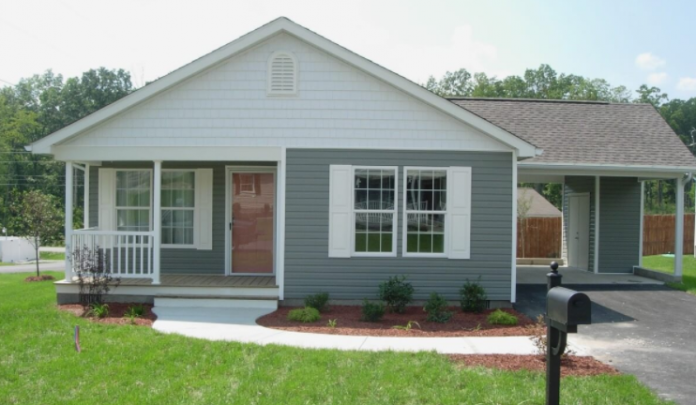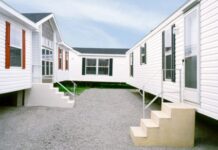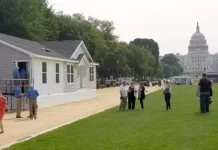Growing Nonprofit Next Step Network Provides Comprehensive Assistance with SmartMH Program
In a mobile home tucked in the mountains of Appalachia, Phyllis raised five children. By the time Stacey Epperson met her in the mid-2000s, Phyllis’ home had fallen into disrepair. The roof leaked, the toilet was falling through the floor and the septic system no longer worked.
Worst of all, $500 of her $650 monthly income went to utilities.
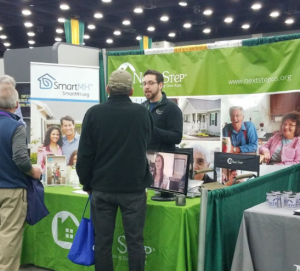
At the time, Epperson was working with a nonprofit that built homes for residents of Eastern Kentucky. Closing on Phyllis’ new home loan was what initially showed her the real cost of old homes. In 1976, the U.S. Department of Housing and Urban Development established safety standards all manufacturing plants must follow. But more than 40 years later, two million homes built prior to this “HUD code” remain in use.
These older homes not only age poorly, but energy expenses often cost residents, like Phyllis, in excess of 50 percent of their income. The cost forces them into persistent poverty. To address the problem, Epperson began Next Step in 2010. It is a nonprofit with the goal of putting all families on a firm foundation.
What SmartMH Does for Homeowners
A few years ago, Next Step introduced SmartMH, a program that seeks to level the playing field for prospective manufactured homebuyers. The program enables people from diverse economic backgrounds to buy their own homes, giving them independence. It also shows clients that manufactured homeownership can be simultaneously affordable and something to take pride in.
After switching to an energy-efficient home, in Phyllis’ case, the utility bill decreased by 75 percent. Later that month, worried at how little energy she’d been using, the utility company sent someone to check on her.
When Epperson began seeking a high-quality, energy-efficient solution for low-income families in Eastern Kentucky, she realized just how urgent the matter was and continues to be.
Consequently, her desire remains to deliver homes to clients faster, but for less money.
So, Epperson sees manufactured homes – the predominant source of unsubsidized affordable housing in the U.S. – as the simplest way to provide for people in need.
And its the lack of subsidy is largely what draws her to these manufactured housing options.
“They’re inherently affordable,” Epperson said of manufactured homes. However, she acknowledges the home also must be energy efficient if the organization is going to help keep money in their clients’ pockets.
Grant Beck, marketing and communications manager for Next Step Partners, describes manufactured housing options as a solution to the affordability crisis. But, he adds, it’s been an “uphill battle to break stigma”.
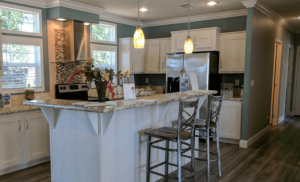

Expansion of SmartMH
So, SmartMH has run as a pilot in Kentucky, but Epperson hopes to expand it to as many as four other states within a year.
With their national partners — eHome America and Freddie Mac — SmartMH provides education for those who seek affordable housing but don’t know how to choose the best home for them. The program relies on retail partners to recommend clients who can’t purchase a home for reasons ranging from lack of credit history, down payment cash or collateral.
“Our goal is to take those folks and pair them with a certified housing counseling organization,” Beck explained. Counselors walk clients through an eHome America homebuyer education program, helping them find resources and build a credit score.
Beck explained, this isn’t “quick-fix credit repair or an overnight process,” but one that requires a committed investment that could take up to six months.
Although prospective homebuyers aren’t required to purchase ENERGY STAR® homes, SmartMH advocates for their long-term, money-saving potential.
SmartMH recently graduated its first student. Nearly 60 remain enrolled in the program. By the end of next year, Epperson hopes to have prepared 275 prospective homebuyers to purchase a manufactured home.
“We give these homebuyers a chance to participate in the American Dream,” Beck said.
The Industry Gets Involved
Next Step and SmartMH rely on a collaborative relationship with the manufactured housing industry, from retailers to manufacturers to national nonprofits.
To fund its programs, they rely on private and public grant funding, as well as corporate donations, individual giving, membership dues and consulting fees.
Now, Next Step shares its model and knowledge with nonprofits across the country. They connect many nonprofits with retail partners and train them to order and create affordable housing options.
For now, SmartMH is a model program. It serves as an intermediary between the nonprofit affordable housing sector and the manufactured housing industry. As SmartMH takes off, Epperson works to get involvement from more retailers, loan partners and counselors.
Also, she’s thinking about financing. What type of loan products the current market needs? What tools prospective homebuyers need to build credit?
Further on, Epperson hopes the program will become a national effort.
“We want to expand the MH marketplace, provide more capital, greater availability of loans and get more lenders interested,” Epperson said. “We sit in the middle and work with both,” Epperson said.


